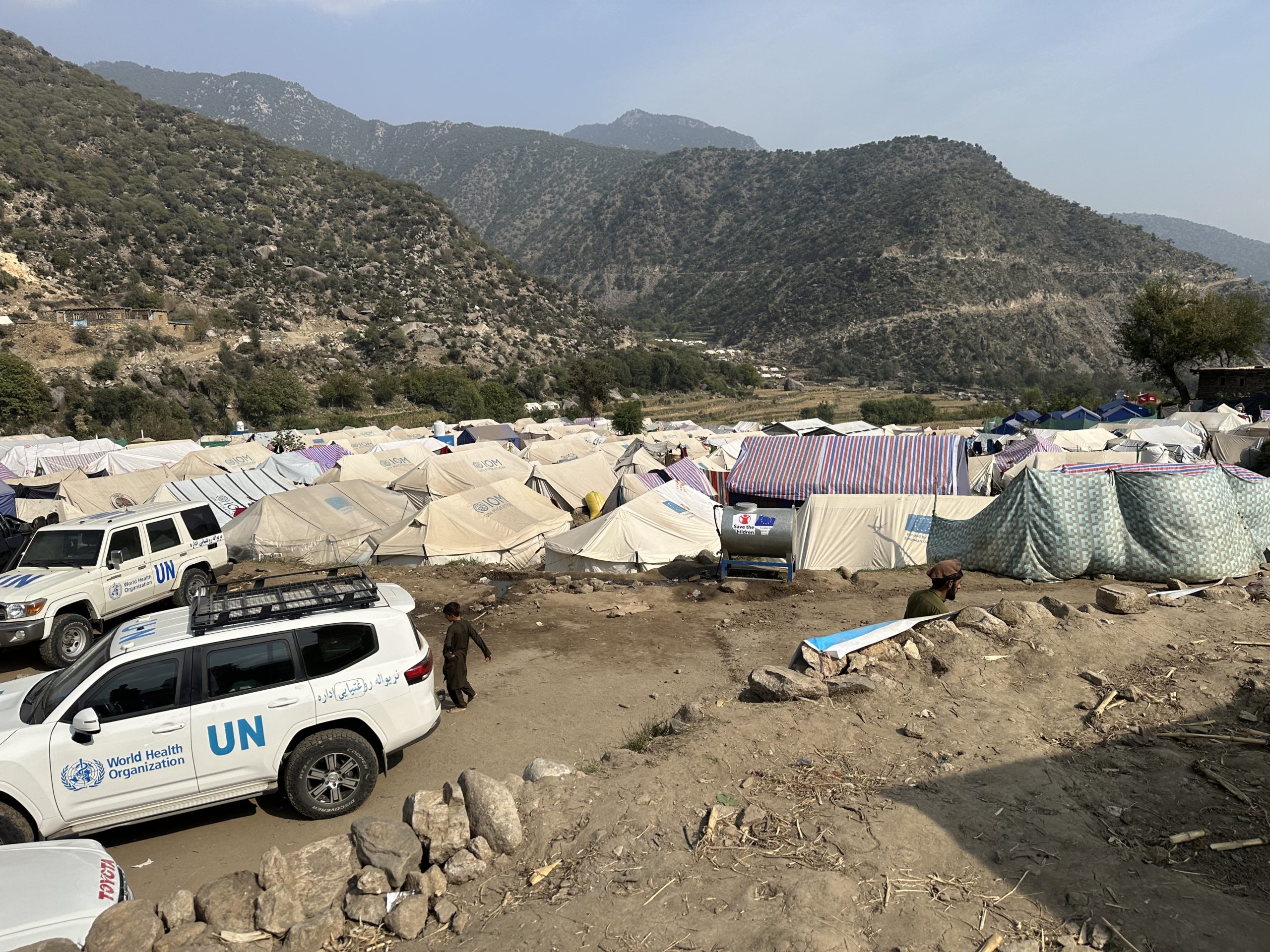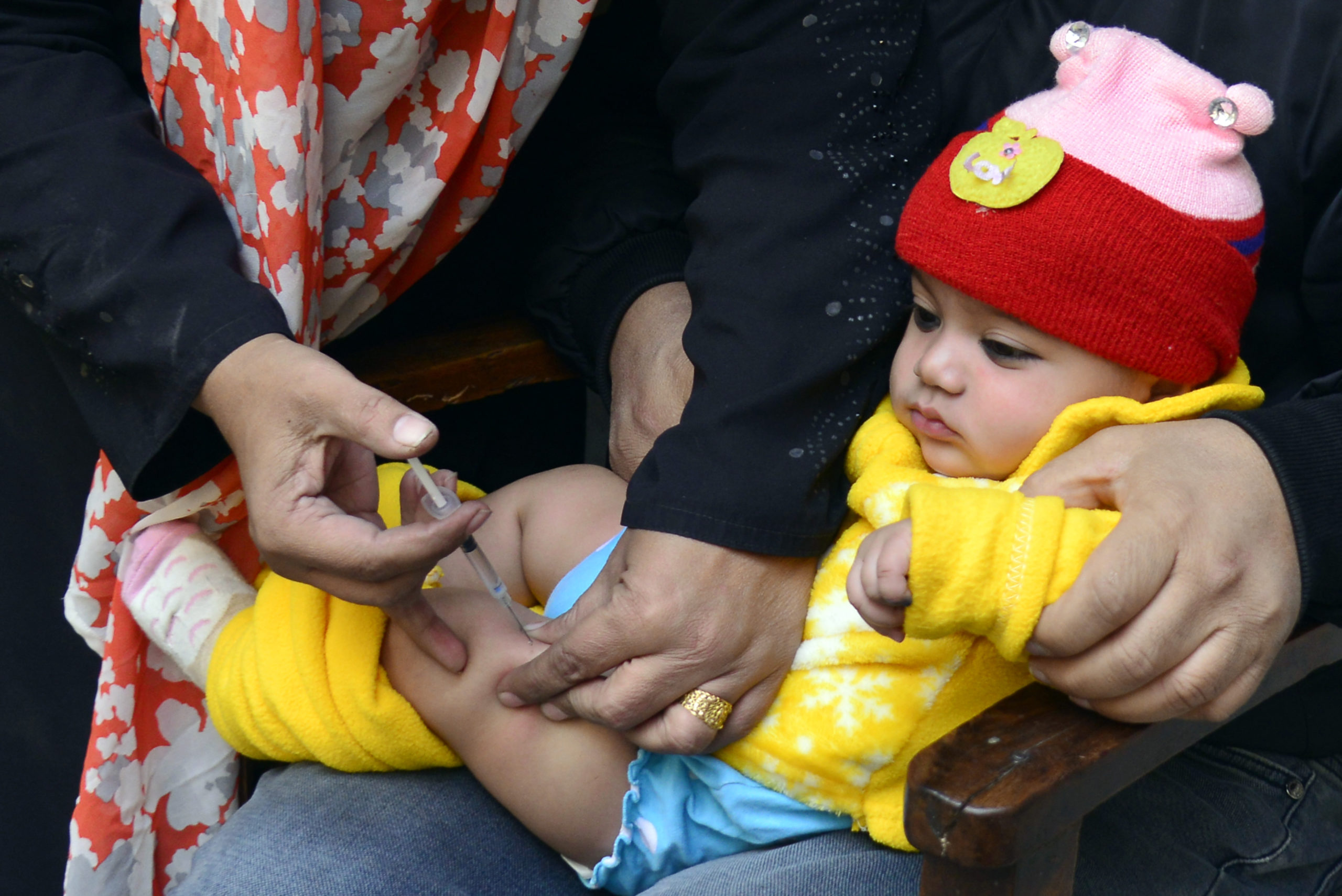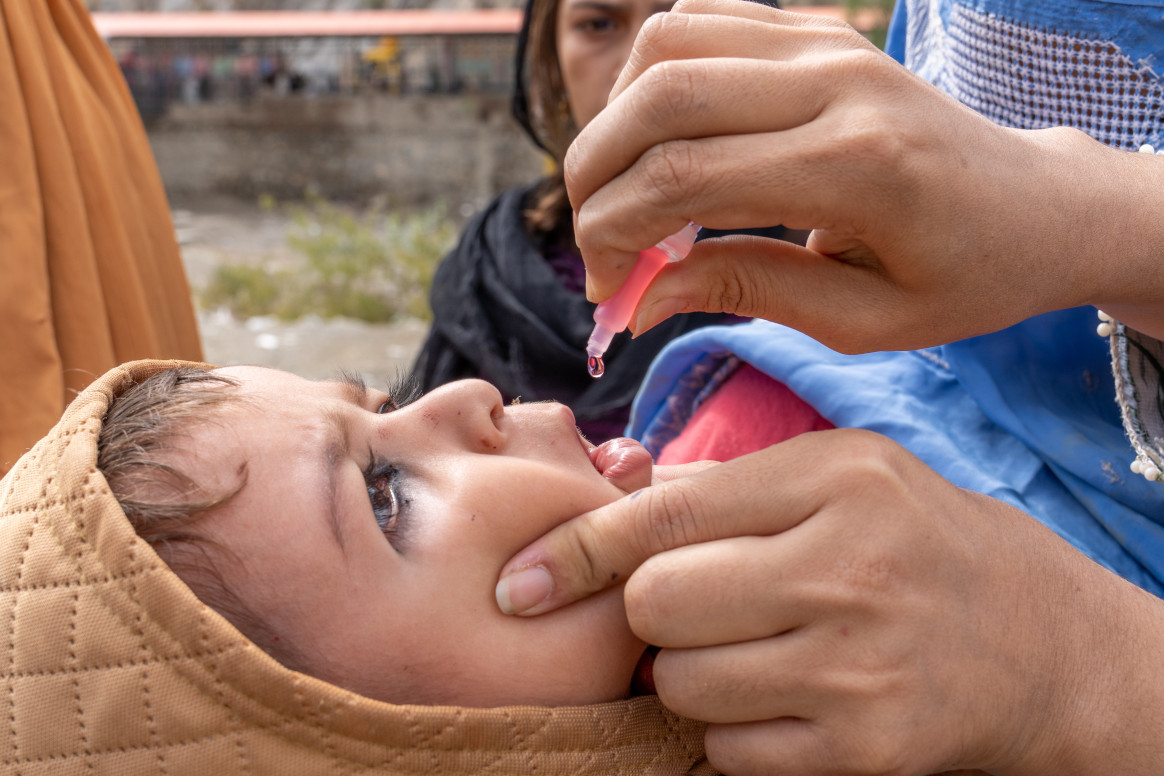
This August, Nigerian polio teams have been employing an innovative five-step approach to reach hard to access children in border settlements, where 67 per cent of polio cases are found in border areas worldwide. Poor services, inaccessibility and insecurity often combine to make these zones into reservoirs of the virus, leaving children at greater risk of this debilitating disease. Improving immunization rates for communities who live near borders is a priority in order to achieve eradication.
In Kaduna State alone, this new approach has enabled health workers to reach 26,749 children in August with oral polio vaccine (OPV). The steps of the new approach cover micro-planning, settlement enumeration, logistics support, monitoring and supervision, and service delivery through health camps and OPV. Through work with traditional and religious leaders as well as health workers, critical logistics have been put in place to ensure a synchronized response. This united effort by stakeholders marks a dramatic step forward in the coordination of immunization efforts in these areas.
The difficulties of reaching these previously under-served communities are great. Reaching communities such as the nomadic Fulanis can be dangerous and challenging, yet mark a significant achievement for the health workers who have formed these links. With this renewed commitment and political will, Nigerian border settlements will continue to receive intensive supervision to ensure that all areas falling within the definition of a border are adequately served and all eligible children immunized.



